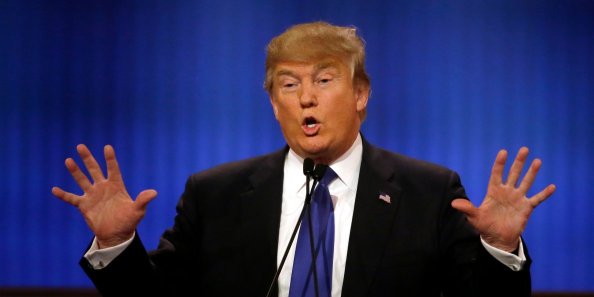 90 years ago, the socialist psychoanalyst Alfred Adler set out his theory of the masculine protest and inferiority complex, two ideas that have, to varying extents, become part of the common vernacular. Adler argued, essentially, that men were the problem. As a result of the conflicting messages passed to men during childhood, male psychology would forever be stuck in tension between independence and submission to the parents. Some men, he argued, are not able to deal with this, and in doing so, develop an inferiority complex against their fathers, and respond by lashing out in masculine protest. Adler was one of the first to make explicit the undeniable links between masculinity and violence, and in a strikingly proto-feminist passage, comments on “the arch-evil of our culture, the excessive pre-eminence of manliness”.
90 years ago, the socialist psychoanalyst Alfred Adler set out his theory of the masculine protest and inferiority complex, two ideas that have, to varying extents, become part of the common vernacular. Adler argued, essentially, that men were the problem. As a result of the conflicting messages passed to men during childhood, male psychology would forever be stuck in tension between independence and submission to the parents. Some men, he argued, are not able to deal with this, and in doing so, develop an inferiority complex against their fathers, and respond by lashing out in masculine protest. Adler was one of the first to make explicit the undeniable links between masculinity and violence, and in a strikingly proto-feminist passage, comments on “the arch-evil of our culture, the excessive pre-eminence of manliness”.
“The excessive pre-eminence of manliness” clearly remains a problem, and Adler’s diagnosis of society’s ills is strikingly relevant in a seemingly post-liberal world spearheaded by a wealthy pussy-grabbing property mogul in the USA and a lion-taming classical strongman in Russia. Much of the blame must very fairly be pointed at the over-indulgence of the violent disposition of the masculine ego that constitutes manhood – an over-indulgence often dressed in the guise of the forever conservative cry of “legitimate concerns” about immigration or the rare occasions where women are structurally empowered, or the overdetermined classist malapropism that has us convinced that “working-class” basically means poor racist sexist white guy.

Putin and his penis
Lots of words have been written on the bad decisions men keep making (we usually call it history), and this is a fair point, but there is an increasing danger here of making the same mistake Adler did. Despite his seemingly miraculous diagnosis, Adler’s account of the masculine is phallocentric – the central referent point for his theory was the penis. As a result, he saw masculinity as a social extension of being biologically male, fixing the masculine protest to the male body, and in doing so, denying masculinity the historical change to which it has been subjected. To lament or condemn the actions of “white men” and pin the blame squarely on them risks reproducing that same phallocentric account of masculinity, making it inevitable.

Donald boasts about his penis
Shuja Haider recently argued in Jacobin magazine that such biological determinism is not a useful tool for resisting the far right, as it plays into their hands. The racism, sexism, homophobia, transphobia, ableism, that builds populist far right movements is justified with assertions about biological destiny, that it is in a woman’s make-up, for example, to be a homemaker, or that black people were predisposed to slavery. Condemning toxic masculinity as an ideal norm is one thing, but to talk about white men as “the problem” borders on dangerous. The late Mark Fisher, slightly controversially, made a similar argument: in such leftist discourse, the relations between ruling and oppressed classes are viewed, wrongly, as fixed, when they are the product of thousands of years of history. Following this brand of leftwing discourse, white men are the “other”, while for those on the right, men are universal, unmarked, unquestioned. Either way, the current configurations of practices that constitute the western man are presumed inevitable and unchangeable – and at a time when we need a strong anti-sexist, anti-racist politics more than ever, such fixity of identity verges on dangerous.
The question then becomes: what does a radical politics require of the privileged? If the masculine protest is real (and all evidence shows that it is as vibrant as ever), it is masculinity in the abstract that is the problem, the particular make-up of the dominant ideal of manhood that currently prevails in the west. Where do we go beyond this? We often hear the phrase “check your privilege” leveled at men who make a profeminist effort, the motivation being to make men aware of the advantages, both material and social, that the excessive pre-eminence of manliness provides them. But mere knowledge of this privilege does little to address the structural causes – namely, the ideal of masculinity to which men with an inferiority complex aspire. When Donald Trump talks about pussy-grabbing, he directly accesses the taboo desires of some men, because of the way that such men know how to behave. In the face of such violent toxicity, a radical male consciousness alone won’t do.
There will be times when men will need to shut up – leftwing conviction will require both the constant awareness that progressive history cannot be told without being fully aware of the diversity of leftist coalition (especially in the face of the erasure of any non-white-male importance in dominant consciousness), and an ongoing critique of the never perfect actions of progressive men (in other words, the avoidance of a cult of personality). But making this critique possible requires a full understanding of how manhood has come to mean what it does today. In so doing, such a protest will unapologetically emasculate. This is the aim of this blog. I will, once a week, use something from my research to critique men, to question a news story, tweet, film, TV programme or experience.
This is not only to denaturalise what we understand “man” to be, but to make the case for emasculation itself, to show that by dismantling our understanding of man, it is not only contextually embedded but dangerous. Unsurprisingly, with the inauguration of President Trump on Friday, the timing of the opening of this blog was wholly deliberate. On Saturday, up to 4.8m people worldwide took part in a Women’s March, a heartening show of anger, solidarity, and protest, against Trump and the supremacy of the Anglo-American far-right. Perpetual shitbag Piers Morgan tweeted a suggestion that men like him start “a ‘Men’s March’ to protest at the creeping global emasculation of my gender by rabid feminists” (maybe they could advertise in Breitbart). I think he thinks emasculation is bad – or, I don’t think he gets that emasculation is itself the whole idea. After all, what is so good about masculinity? When was the last time masculinity made a positive contribution to society?
 Radical politics requires men to do the work of addressing the masculine ideal that has got them here, to counter the masculine protest with an emasculating one. Masculinity doesn’t just grant men permission to behave toxically, it directly compels them to do so, and the fact of Trump’s victory suggests we have become desensitised to this. In the face of this normalisation, the norm of masculinity has to be subjected to exhaustive questioning. “Men” as we know them cannot continue to behave in the way they are doing. The very concept of man needs a radical overhaul, not condemnation but drastic transformation.
Radical politics requires men to do the work of addressing the masculine ideal that has got them here, to counter the masculine protest with an emasculating one. Masculinity doesn’t just grant men permission to behave toxically, it directly compels them to do so, and the fact of Trump’s victory suggests we have become desensitised to this. In the face of this normalisation, the norm of masculinity has to be subjected to exhaustive questioning. “Men” as we know them cannot continue to behave in the way they are doing. The very concept of man needs a radical overhaul, not condemnation but drastic transformation.